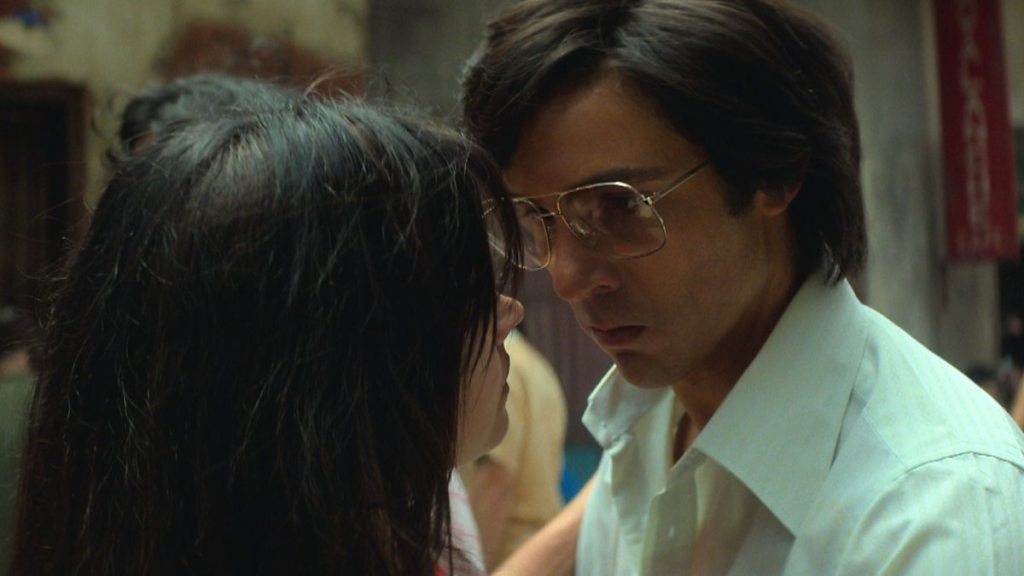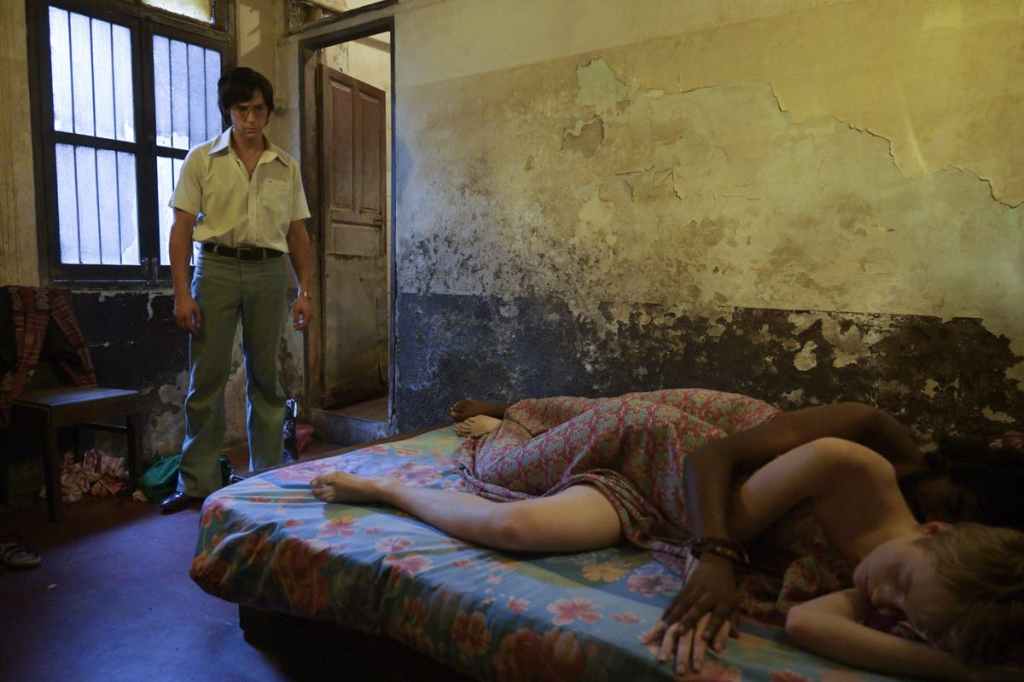
When the BBC announced that would be bringing the story of Charles Sobhraj to the small screen, I read up a little on his case. It’s a mind-boggling story, full of deceit, manipulation, glamour and terrifying violence. It’s also a story that evolved until the 2010s, so I knew that going into this final episode writers Richard Warlow and Toby Finlay had a lot to shoe-horn 30 years’ worth of strangeness into an hour-long episode.
Throughout the series, Warlow and Finlay have used the flashback device judiciously, even though because of the nature of this story there have been frequent (and abrupt) changes of location, lots of characters to get to grips with and unearthed pieces of the story buried back in the past. There has been a whisper that The Serpent has been too reliant on these flashbacks, and that’s a compelling argument.
The thing about using flashbacks is they can, if not handled correctly, add distance between story and viewer, and often any emotional between the two connection can be lost. However, I do think each flashback in The Serpent has been used with the best of intentions and have added a dimension to each of the characters that any linear narrative simply could not provide.
And there were flashbacks and flash-forwards aplenty in this final instalment.
We saw Charles and Marie-Andrée in India, frantically working to build up funds and passports to stay one step ahead of the authorities. Sobhraj had employed a whole posse of drug-addled travellers to help him, all of who were living in the same apartment as Marie-Andrée. Sobhraj was ‘processing’ 30 tourists at a time, that’s how keenly he felt the international arrest warrant.
From the refined glamour of Paris and a dream come true, to squalor in India. Marie-Andrée was not happy.
Watching Jenna Coleman’s performance as the doomed Marie-Andrée was something else. Here she fell apart at the seams, desperation turning to rage turning to righteous vengeance. Naturally when they were both caught (thanks to the fastidious and determined Indian police, with Herman Knippenberg hanging on the other end of a telephone line in Bangkok), Marie-Andrée provided a damning, full statement detailing their awful deeds.
Even though Knippenberg and Siemons provided the procedural thrust of this series, often to thrilling effect, it was really the relationship between Marie-Andrée and Sobhraj that provided a fascinating, often heartbreaking character study. Doomed to die of cancer, which developed during her incarceration, Marie-Andrée went to see Sobhraj before she left for Quebec and to live out the rest of her days. Sobhraj showed no sign of love or remorse in this powerful scene, with Marie-Andrée incredulous at first then entirely unsurprised at his lack of emotion.
Did I feel sorry Marie-Andrée? Yes, to some extent. She was desperate for love and acceptance, status even. So much so, she willingly turned a blind eye to her lover’s actions, which is unforgivable. Coleman captured her vulnerability perfectly, as well as the strange duality within her that caused her to remain compliant almost to the end.
Sobhraj was a very interesting, dangerous and slippery character. Not your usual psychopath, his motivations were different – they seemed to be based around a desperate need for validation, and a shockingly arrogant and self-serving sense of false grandeur. His narcissism was immense, and enough to launch him on to a road of murder and mayhem. All that being said, I felt I didn’t get a full grip on his personality. He didn’t have a very happy childhood, which had been established, and he yearned for control and status. And yet… I came out of this not really knowing why.
However, to play such a character, a charismatic actor was needed and Tahir Rahim simply oozed charm, beauty and pupil-narrowing menace all at once. Rahim provided the perfect combination in a series he was hardly off-screen.
In the end, Sobhraj – after being released from the Indian jail and spending time in Paris as a free man – travelled back to Kathmandu, the scene of some of his crime decades before. Why he went there no one knows, but there was time for once last tense scene. An older Knippenberg frantically faxed a key piece of evidence to the Kathmandu police just before Sobhraj was about to walk out unimpeded.
And that’s what I felt about the final episode – it was dazzling in places and a little bit all over the place, but certainly intriguing and often stranger than fiction. In fact, I could say that for the whole of the series. Some of the suspense scenes from earlier in the series were simply a masterclass, but occasionally the whole story buckled slightly under the weight of its ambition, and the international nature of the Charles Sobhraj story itself.
The Serpent was an apt name, because this series was as slippery as Sobhraj himself.
Paul Hirons
EPISODE RATING:
SERIES RATING:

READ MORE: OUR EPISODE ONE REVIEW
READ MORE: OUR EPISODE TWO REVIEW
READ MORE: OUR EPISODE THREE REVIEW
READ MORE: OUR EPISODE FOUR REVIEW
READ MORE: OUR EPISODE FIVE REVIEW
READ MORE: OUR EPISODE SIX REVIEW
READ MORE: OUR EPISODE SEVEN REVIEW







